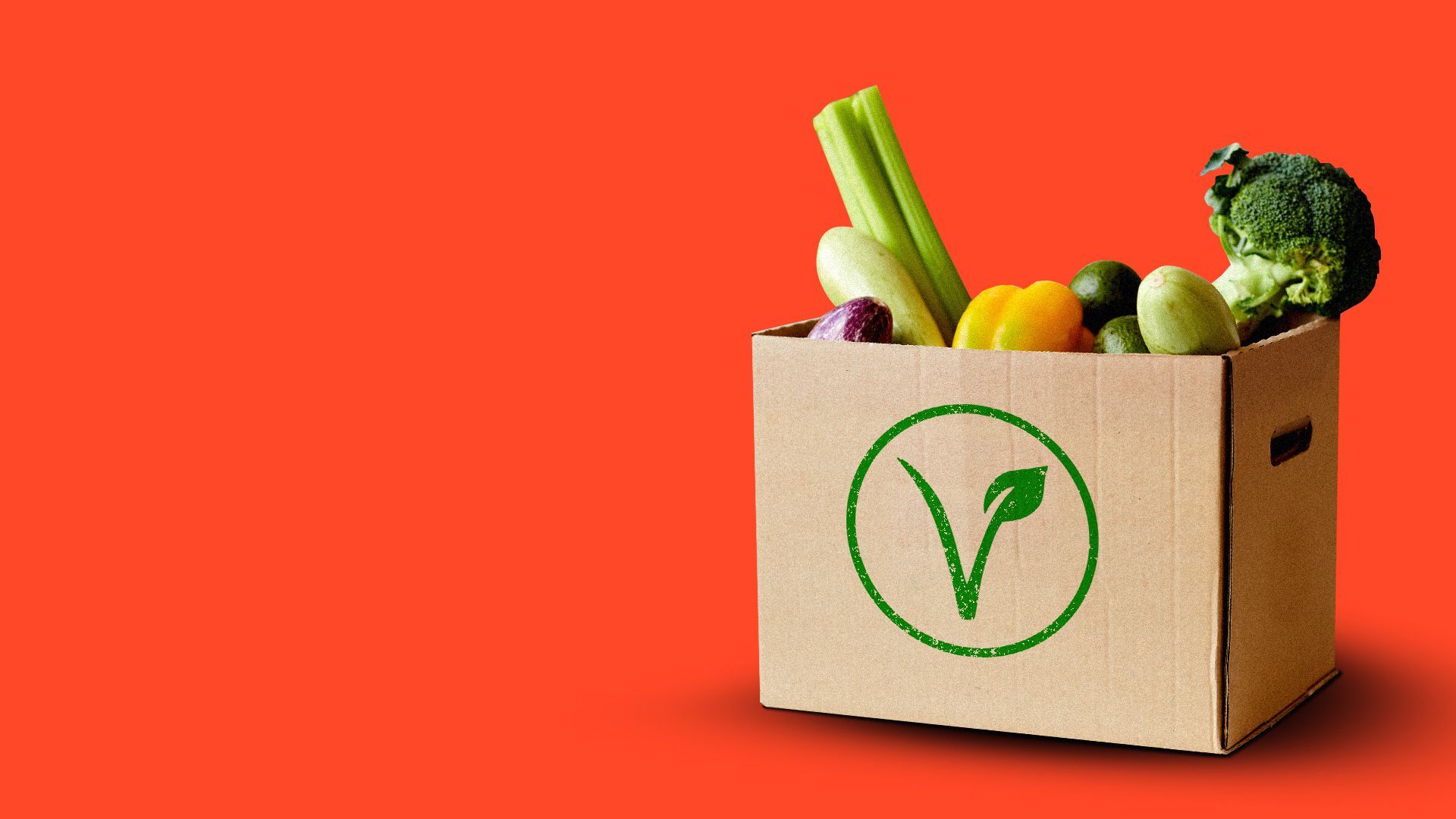| | | | | | | Presented By PhRMA | | | | Vitals | | By Caitlin Owens ·Feb 03, 2021 | | Good morning. - Join us for the launch of Axios Local's Smart Take virtual event series. Tomorrow at 12:30pm ET, Axios Tampa Bay reporters Selene San Felice and Ben Montgomery will host a conversation on Tampa's hospitality industry and economic recovery, featuring Tampa Mayor Jane Castor and Tampa Bay Economic Development Council president and CEO Craig Richard.
- Register here.
Today's word count is 882, or a 3-minute read. | | | | | | 1 big thing: Young and middle-aged adults are biggest COVID spreaders |  The coronavirus pandemic in the U.S. has been chiefly driven by young and middle-aged people, while killing mostly older people. Driving the news: Adults aged 20-49 were responsible for the vast majority of virus transmission last year, even after schools reopened in the fall, according to a new study published in Science. Why it matters: The U.S. vaccination effort is racing to keep up with the spread of new, more transmissible variants of the virus. Millions more Americans could be infected before a substantial portion of the population is vaccinated, making transmission patterns deeply relevant. - The notion that non-vulnerable people can go about their normal lives, while vulnerable people self-isolate, has not borne out in the U.S.
By the numbers: Three-quarters of new infections originated from adults 20–49 until mid-August of last year. Adults 35–49 contributed the most to spread. - In October, after a large portion of U.S. students returned to school, this age group was still responsible for about 72% of new infections.
- The study estimates that school reopenings increased total infections by about 26% as of October, and deaths by about 6% — because children and teenagers spread the virus to adults, who are "more transmission efficient."
Between the lines: Young and middle-aged adults "naturally have most contacts to other adults aged 20 and above, which are more susceptible" to the virus, and they were more mobile from April on, per the study. The bottom line: "This suggests that additional interventions to adults aged 20–49, including rapid mass vaccination if vaccines prove to block transmission, could bring resurgent COVID-19 epidemics under control," the authors conclude. |     | | | | | | 2. Cities struggle to target vaccines | | Several big cities have had to retool their vaccine distribution after wealthier, white residents poured into systems that were supposed to prioritize the lower-income communities of color hit hardest by the pandemic, the New York Times reports. The big picture: People who have can take away from work, have the time to navigate reservation systems and busy phone lines, and who have reliable transportation have all had a leg up — even though those largely aren't the communities where the coronavirus is doing the most damage, Axios' Marisa Fernandez writes. By the numbers: In Washington, D.C., 40% of the nearly 7,000 appointments made available to people 65 and older were taken by residents of the wealthiest and whitest ward, where only 5% of the city's COVID deaths were located. - Partial vaccination data from other cities like Philadelphia and Miami, point to similar disparities, per NYT.
What's next: Washington, D.C. has changed its policy in prioritizing zip codes with the highest infection rates — which have tended to be Black and brown neighborhoods — and other cities are trying to do the same. |     | | | | | | 3. HCA reports increased 2020 profit | | Hospital behemoth HCA Healthcare said yesterday that its annual profit increased in 2020, in spite of the pandemic, the Wall Street Journal reports. By the numbers: Admissions to the hospital chain dropped by 4.7% last year, but revenue per hospitalized patient increased by 10.5%. - Net income rose by 7.1%, from $3.51 billion in 2019 to $3.75 billion last year.
- Coronavirus patients made up about 8% of HCA's overall admissions, with the biggest impact at the end of the year.
- HCA returned $6 billion in federal relief grants and loans in the fourth quarter.
The big picture: The pandemic will likely deepen the financial divide between wealthy hospitals and struggling ones, which tend to be located in rural areas or serve vulnerable populations. - For some less wealthy hospitals, federal relief has been critical.
- Rural hospital closures increased last year, George Pink, deputy director of the North Carolina Rural Health Research Program at the University of North Carolina at Chapel Hill, told the Journal.
What they're saying: "The weak got weaker, but the strong held on," Kevin Holloran, a senior director with Fitch Ratings, told WSJ. |     | | | | | | A message from PhRMA | | We are committed to being a part of the solution | | |  | | | | As we usher in a new Congress and new administration, we can all agree that people need quality, affordable health coverage that works when they need it. - We are focused on solutions that help patients better afford their medicines and protect access to innovation today and in the future.
| | | | | | 4. The rise of vegan food pantries |  | | | Illustration: Aïda Amer/Axios | | | | Heightened demand for food banks has prompted vegans to organize, soliciting donations of non-animal products and setting up distribution channels for them, Axios' Jennifer Kingson reports. Why it matters: As the pandemic persists, the number of people who are food-insecure remains alarmingly high — and any number of them may eschew animal products. The big picture: Many experts suspect the coronavirus first spread to people through a live animal market, and PETA makes the argument that going vegan "can help cut off the next pandemic at its source." - Its "Vegans for the vulnerable" initiative asks people to pick up extra plant-based foods items while grocery shopping and donate them to a pantry.
- Together with Chipotle and Baskin-Robbins, PETA Latino has organized donations of vegan burritos and ice cream to frontline hospital workers in Chula Vista, California.
Of note: A vegan food bank in Bath, England sends the message that you don't have to be vegan to become a client. Go deeper. |     | | | | | | 5. The latest in the U.S. |  | | | Illustration: Aïda Amer/Axios | | | | More than 1 million doses of COVID-19 vaccine will be made available to about 6,500 pharmacies across the U.S. beginning Feb. 11, the White House said Tuesday. Russia's Sputnik V vaccine demonstrated nearly 92% efficacy against symptomatic cases of COVID-19 and provided complete protection against severe cases, according to a peer-reviewed analysis of a large clinical trial published in the medical journal the Lancet. The vaccine also appears to be safe. Bracelets, rings, key fobs and watches that double as credit or debit cards are enjoying a burst of popularity as COVID-wary consumers gravitate toward contactless payments, Jennifer reports. President Biden told Senate Democrats at a virtual lunch on Tuesday that Republicans' current $618 billion coronavirus relief proposal is "too small," but he wants to continue working toward a compromise and is willing to bend on the final price, a source on the call told Axios' Alayna Treene. States are shifting vaccine doses away from the federal nursing home inoculation program, which has so far overestimated how many doses would be needed, per NYT. |     | | | | | | A message from PhRMA | | Biopharma is committed to being a part of the solution | | |  | | | | As we usher in a new administration and Congress, there are many things on which we can all agree, like building a more just, equitable society. | | | | | | Axios thanks our partners for supporting our newsletters.
Sponsorship has no influence on editorial content. Axios, 3100 Clarendon Blvd, Suite 1300, Arlington VA 22201 | | | You received this email because you signed up for newsletters from Axios.
Change your preferences or unsubscribe here. | | | Was this email forwarded to you?
Sign up now to get Axios in your inbox. | | | | Follow Axios on social media:    | | | | | |







No comments:
Post a Comment